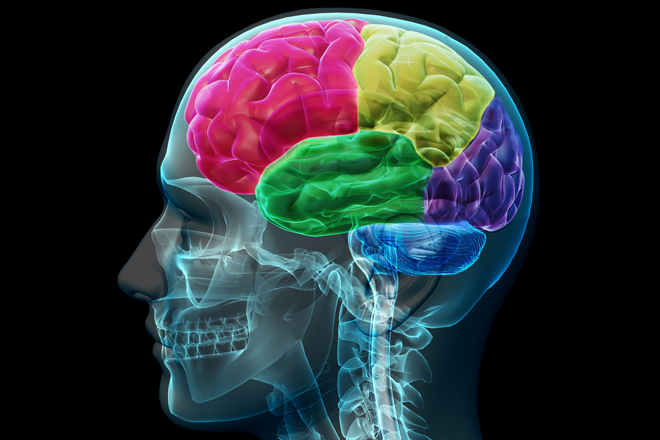In his memoir, “Struck By Genius: How a Brain Injury Made Me a Mathematical Marvel”, excerpted by Salon, Jason Padgett explains how a brain injury radically altered how he sees the world and turned him into a mathematical genius. In 2002, Padgett was attacked outside of a karaoke bar. During the attack two men kicked him in the head and he reported being momentarily knocked out and seeing a flash of light.
He suffered a bleeding kidney and a severe concussion, and emerged a mathematical savant with synesthesia — a condition where one sense runs into the other. The way Padgett views the world is completely altered; he describes being able to visually see mathematical patterns in the world. (In the excerpt he describes the vibrations in water, and the swirls of cream in coffee.)
In the excerpt from his book Padgett writes, “Doctors tell me that nothing in my brain was newly created or added when I was injured. Rather, innate but dormant skills were released.” What was it that so dramatically changed in Padgett’s brain?
Berit Brogaard, a PhD and philosophy professor at the University of Miami, may have new answers. According to Live Science, she and her colleagues did an fMRI (functional magnetic resonance imaging) scan of Padgett’s brain to figure out what caused his acquired savant syndrome. Only 15 to 25 cases of the syndrome have been documented in medical studies. “Acquired savant syndrome is very rare,” Brogaard told Live Science.
The fMRI scans the brain and shows changes in oxygen and blood flow. While Brogaard’s team scanned, they showed Padgett both real and ridiculous mathematical equations; the purpose was to stimulate images in Padgett’s mind. According to Live Science this is what they found out:
“The resulting scans showed significant activity in the left hemisphere of Padgett’s brain, where mathematical skills have been shown to reside. His brain lit up most strongly in the left parietal cortex, an area behind the crown of the head that is known to integrate information from different senses. There was also some activation in parts of his temporal lobe (involved in visual memory, sensory processing and emotion) and frontal lobe (involved in executive function, planning and attention).”
Now researchers understood which parts of his mind lit up when looking at the equations, but they still weren’t sure if these areas were causing the synesthesia. To test that they needed to use transcranial magnetic stimulation (TMS). What they did is activate and turn off the brain by zapping it with a magnetic pulse.
“When they zapped the parts of Padgett’s parietal cortex that had shown the greatest activity in the fMRI scans, it made his synesthesia fade or disappear, according to a study published in August 2013 in the journal Neurocase.”
Another one of Bogaard’s studies showed that “when neurons die, they release brain-signaling chemicals that can increase brain activity in surrounding areas.” Hence other parts of the brain are super stimulated when some neurons die. Sometimes this change is short-lived, other times it is more persistent.
In his book, Padgett talks about going to see psychiatrist Darold Treffert, a renowned expert in the field of savants and acquired savants. Padgett describes part of his encounter with Dr. Treffert:
“After interviewing me in his office and in his home, he declared that my acquired synesthesia and savant syndrome was self-evident, and he also suggested that all of us have extraordinary skills just beneath the surface, much as birds innately know how to fly in a V-formation and fish know how to swim in a school.”
Live Science posed the question to Bogaard. Could there really be something like this dormant in us? She told them that more than likely this was the case.
Despite the truly incredible abilities that Padgett now has, he has suffered as well. Padgett now has severe obsessive-compulsive disorder, as well as post-traumatic stress disorder.
In the excerpt, however, he seems content. “If I could draw the world as I see it and show every last person how he or she is enmeshed in this fine and intricate and impossibly beautiful structure, perhaps people would stop getting lost in the hurt of things and be elevated by the wonder of it all,” Padgett writes.

